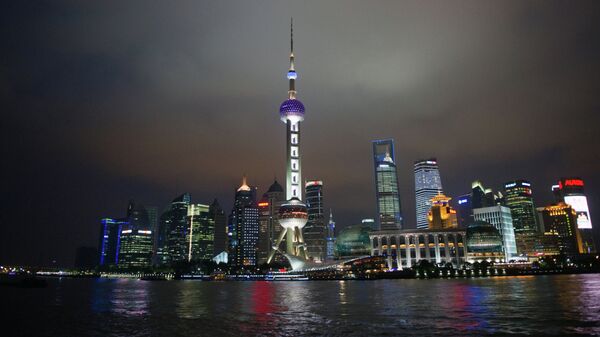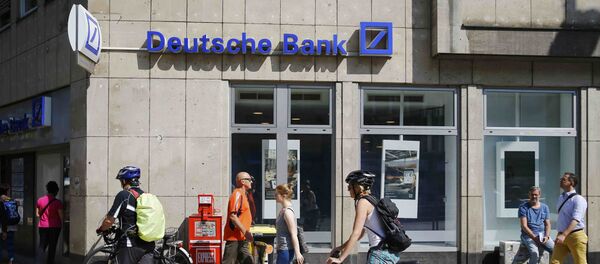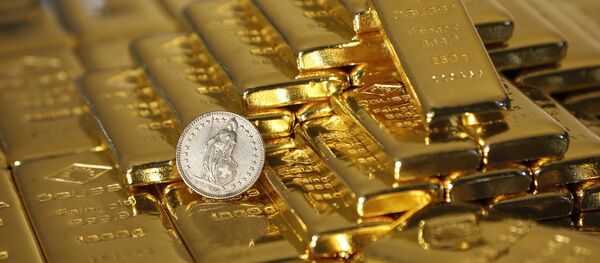Western banks may soon have to step aside for their Asian competitors, N. Balakrishnan, a Hong Kong-based businessman, wrote in an opinion piece for the South China Morning Post.
"History surprises only those who do not follow current trends," Balakrishnan notes, "For example, in the early 20th century, the US economy was already larger than that of Britain or France, but it took another 50 years for it to lead the world. However, the trends favoring the US were there for anyone with an objective eye to see."
"Similarly, how long will it be before a Chinese bank takes over Standard Chartered or HSBC? Such an idea may sound far-fetched or even unpleasant to some but, if current trends continue, it is inevitable," the businessman stresses.
According to Statista.com, Industrial and Commercial Bank of China is the largest bank in the world, with assets amounting to $3.55 trillion as of March 2016.
China Construction Bank Corp. is ranked the second in the list, while Agricultural Bank of China occupies the third position. Japan's Mitsubishi UFJ Financial Group holds the fourth position and Bank of China is ranked fifth.
Incredible as it may seem, the UK's world-famous HSBC Holdings Plc. only ranks sixth in the Statista.com chart with assets totaling $2.59 trillion. Just a year ago, it was ranked the fourth largest bank in the world.
Furthermore, Balakrishnan highlights that "some banks in India have a market capitalization greater than the mighty Deutsche Bank."
"One is the HDFC Bank, founded in 1977. Deutsche Bank was founded in 1870. Kotak Mahindra Bank, which was only formed in 1995, is another booming Indian lender. Set up by a group of friends with $40,000 sourced from their cotton-trading business, it now has a net worth of some US$7.6 billion," the businessman points out.
CNBC's finance editor Jeff Cox wrote back in May that the rise of China's banks rang alarm bells for the US banking sector.
"Of the top 20 banks, just four are in the US, which has only six of the top 50. (Wells Fargo is No. 11, Citigroup is No. 13, Goldman Sachs is No. 28 and Morgan Stanley is No. 38.) By contrast, China occupies the top four slots [SNL Financial chart] and 11 of the top 50," Cox noted.
"The trend comes amid the continued clamor for Wall Street banks either to shrink or break up altogether," the journalist emphasized.
"For a long time, we Asians believed that while the 'white man' may not have good food or social graces, he was more honest when it came to financial dealings," the businessman remarks, bemoaning the fact that today, "by contrast, 'Western' banks… seem to be making the news more for rigging foreign exchange rates and money laundering."
For instance, a few months ago it turned out that Germany's Deutsche Bank AG and some other Western financial institutions had been involved in manipulating gold and silver prices, futures, options and other derivatives for years.
"Silver and gold futures traders sued groups of banks in 2014 alleging they rigged prices for the precious metals and their derivatives. Silver traders brought claims against Deutsche Bank, HSBC Holdings Plc, Bank of Nova Scotia and UBS AG. Gold traders additionally sued Barclays Plc and Societe Generale SA," Bloomberg reported on April 14.
Commenting on the matter, American researcher and strategic risk consultant F. William Engdahl stressed that the disclosure dealt a heavy blow to Western bank's credibility and suggested that in this context China's financial institutions and markets may take on a new significance for international investors.
"In a generation, 'Western' banks in Asia will be just a memory and a historical footnote. Those who don't believe it must be the descendants of those who thought Toyotas could never replace Morris Minors," Balakrishnan concludes.




